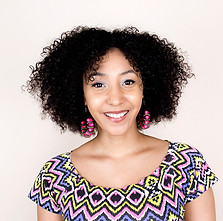IVECA is
Intercultural Virtual Exchange of Classroom Activities
The IVECA Center for International Virtual Schooling (d.b.a. IVECA) is a US-based 501(c)3 non-profit organization in Special Consultative Status with the United Nations Economic and Social Council (ECOSOC) and associated with the UN Department of Global Communications (DGC).
The IVECA Center supports all levels of schools and universities across the world to participate in its global collaborative learning program called IVECA (Intercultural Virtual Exchange of Classroom Activities).

What We Do
Programs & Projects

Through virtual teachers’ rooms, participant teachers in different countries share their lesson plan ideas, teaching strategies and their teaching viewpoints regarding intercultural understanding. Teachers’ pedagogical, intercultural and technological strategies will be exchanged to effectively enhance their students’ intercultural competence.

The Global Virtual Roundtable gives students and educators the opportunity to speak with and learn from peers around the world and offers a platform where participants can further develop their skills in intercultural competence. These are a fantastic opportunity for youth leaders to develop and share their voice and knowledge on a far-reaching platform.

IVECA participates and hosts partner schools at various events and conferences carried out at the UN Headquarters in New York. This incredible connection gives students and teachers an unparalleled international learning experience, while exposing them to the highest level of work currently underway in the international arena.
News & Events
Latest Stories & Upcoming Events



1-on-1 with International Virtual Schooling CEO
June 9, 2019
Learn more about our work and how you can be at the forefront of education for global citizenship!
International Day of Celebration for Education for Global Citizenship
June 9, 2019
Join us for our annual event!
From Idea to Reality: The Evolution of International Virtual Schooling
June 9, 2019
Get familiar with the history of international education and how virtual schooling is making education more equitable and democratic!
Impact
Testimonials from Students, Teachers, Professors, & School Community
By 2030, ensure that all learners acquire the knowledge and skills needed to promote sustainable development, including, among others, through education for sustainable development and sustainable lifestyles, human rights, gender equality, promotion of a culture of peace and non-violence, global citizenship and appreciation of cultural diversity and of culture’s contribution to sustainable development












